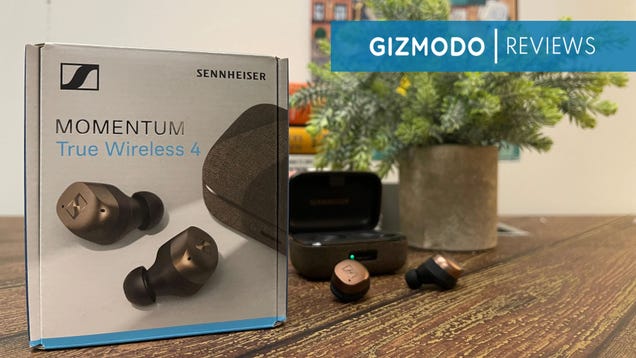
"I get way more scared and embarrassed having to talk about my personal life in interviews than saying it in a song," Prince Royce admits during an interview in Los Angeles for his new album, "Llamada Perdida," which dropped Friday. With a decade-plus career that has generally been free of controversy, the Dominican American bachata artist and pop star is wearing his heart on his sleeve in his first LP since a very public divorce. Prince Royce says he has found healing through music while re-prioritizing himself and pushing the bachata genre to new places.
"Right now, I feel like I'm in a good place," he tells POPSUGAR. "Everybody has problems. It's just how you deal with them, and I think it's all part of growth. That's how I took in this experience in my personal life that happened in the last two years."
Royce is referring to his split with ex-wife and Mexican Lebanese actress Emeraude Toubia. After their fairy-tale-like wedding in 2018, the two announced their divorce in 2022 after 12 years together. For Prince Royce, it was the first time that a difficult moment in his private life had gone very public.
"Some of these things in my personal life had been going on for a while. You're kind of battling this thing in private until it actually explodes to the people.""A lot of people thought when they saw it on Instagram, that's when it actually happened," he recalls. "Some of these things in my personal life had been going on for a while. You're kind of battling this thing in private until it actually explodes to the people. Fans want to know what happened, and what if I don't want the fans to know? I tried to stay away from social media for some time."
Prince Royce's vast catalog of hits includes love songs alongside bachata tracks about heartbreak. There's classics like 2014's "El Amor Que Perdimos," and "Culpa al Corazón," which was released a few years later. He admits that while he didn't experience any breakups while writing those songs, they struck a different chord when he revisited them after his divorce.
"I started listening to songs of the past, and I started to believe I was living what I wrote," he says. "I was living my past songs in the present. It was actually mad weird and scary. I cried to one of my old songs, and I felt like I was vibing with a Prince Royce that saw Prince Royce's future."
Prince Royce's divorce, compounded with the COVID-19 pandemic, left him with a lot to reflect on. He temporarily stepped away from the spotlight and surrounded himself with loved ones. During his brief hiatus from music, the bachatero reevaluated how he wanted to move on with his life and his career.
"I started listening to these podcasts about manifestation," he says. "When problems come, I just try to be positive. I'm genuinely trying to be a better person, make better decisions, and take care of my health. I want to try to put out the best music that I can do. I want to feel good about it. I want to do new things."
For Prince Royce, creating "Llamada Perdida" was a cathartic experience. On the 23-track LP, there are several bachata songs about heartbreak: he sings about suffering from heartache in "Sufro" and later wanting to numb the pain with morphine in the R&B-infused "Morfina," featuring Paloma Mami. But he maintains that "not every song has to be real."
"Some songs are fictional. Some songs are just inspired by [something]. Some songs are not 100 percent. I like to hide myself behind the artistry of what if it is or what if it isn't," he explains.
Throughout his career, Prince Royce has proudly represented bachata music from the Dominican Republic. While recording the album, he rediscovered his joy for making music and innovating the age-old genre in his own way. One of the most poignant collaborations is "Boogie Chata," featuring A Boogie Wit da Hoodie. The song seamlessly blends bachata with elements of hip-hop.
"[A Boogie Wit da Hoodie] is such a talented dude," Prince Royce says. "He's from the Bronx. I wanted to do something that was like Bronx representation. That's another one of my favorites. It was a great fusion. We did it just kind of doing our thing and having fun."
Prince Royce also taps into the música Mexicana explosion with the song "Cosas de la Peda." Rising Mexican singer Gabito Ballesteros is featured in the heartbreaking song, which is a freshly unique mix of bachata with corridos tumbados. In the music video, Prince Royce also embraces a Mexican vaquero style as he sings with Ballesteros in a cantina.
"I did 'Incondicional' that had mariachi, and I recorded before with [Mexican singers] Roberto Tapia and Gerardo Ortiz," he says. "I wanted to push the envelope even more and have a bachata song with a deeper regional Mexican influence. I got to do that on this album. I just felt more free. I wanted to represent bachata and where I'm from with this type of album and still give a little bit of everything."
Prince Royce was also excited to explore more Dominican genres — like dembow in "Le Doy 20 Mil" and merengue típico in the fiery "Frío en el Infierno." One of the songs that mean the most to him is the empowering "La Vida Te Hace Fuerte," where he sings about the hard knocks of life making him stronger.
"We all go through very difficult things in our lives very differently," he says. "We all go through problems, but how do we solve them together? This is an album about overcoming obstacles. I want to just be here, do my thing, do things that make me happy, and try to keep touching people's hearts."

 10 months ago
100
10 months ago
100









 Bengali (BD) ·
Bengali (BD) ·  English (US) ·
English (US) ·